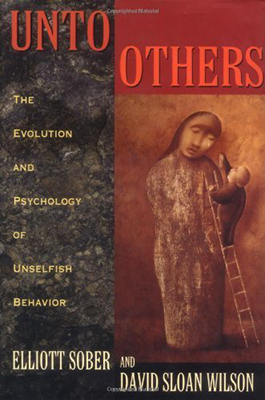Unto Others
“Unto Others: The Evolution and Psychology of Unselfish Behavior” is a book written by Elliott Sober and David Sloan Wilson, first published in 1998. In this book, Sober and Wilson explore the evolutionary origins and psychological mechanisms underlying altruistic and cooperative behavior in humans and other animals.
The central premise of “Unto Others” is that altruism and cooperation, seemingly selfless acts that benefit others at a cost to oneself, have evolved through natural selection and are widespread across species. Sober and Wilson draw on insights from evolutionary biology, psychology, and game theory to provide a comprehensive analysis of the factors that promote and sustain unselfish behavior.
The authors examine various explanations for altruism, including kin selection, reciprocal altruism, and group selection. They argue that altruistic behavior can evolve when it benefits the reproductive success of relatives, enhances one’s own chances of receiving reciprocal benefits, or contributes to the success of a group to which one belongs.
Throughout the book, Sober and Wilson explore the empirical evidence supporting these theories, drawing on studies of animal behavior, evolutionary biology, and psychology. They also discuss the implications of their findings for understanding human social behavior, morality, and cooperation.
In addition to presenting theoretical models and empirical research, “Unto Others” offers insights into the philosophical and ethical implications of evolutionary explanations for altruism. Sober and Wilson address questions about the nature of morality, free will, and the relationship between biology and ethics, challenging readers to reconsider their assumptions about human nature and the origins of morality.
Overall, “Unto Others” is a comprehensive and thought-provoking exploration of the evolution and psychology of unselfish behavior. Sober and Wilson’s interdisciplinary approach, combined with their clear and engaging writing style, makes this book accessible to readers from a wide range of backgrounds and disciplines, offering valuable insights into the origins and nature of altruism and cooperation.

